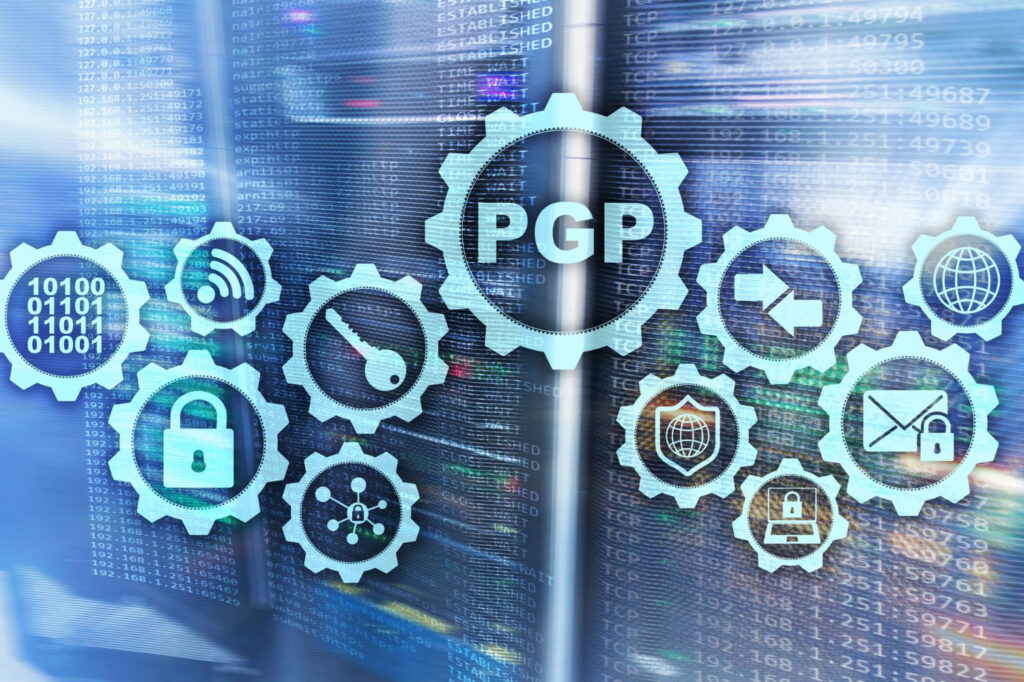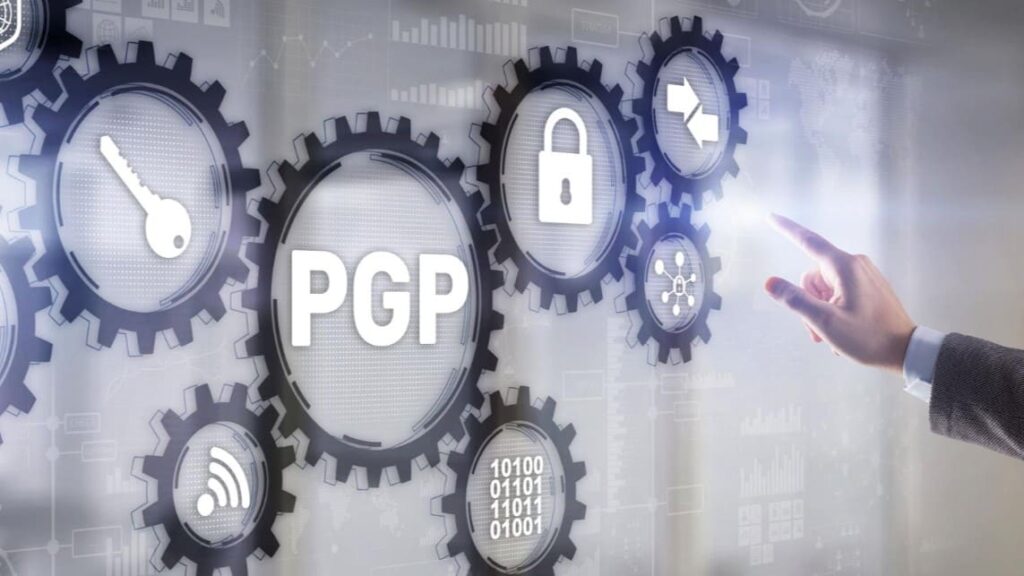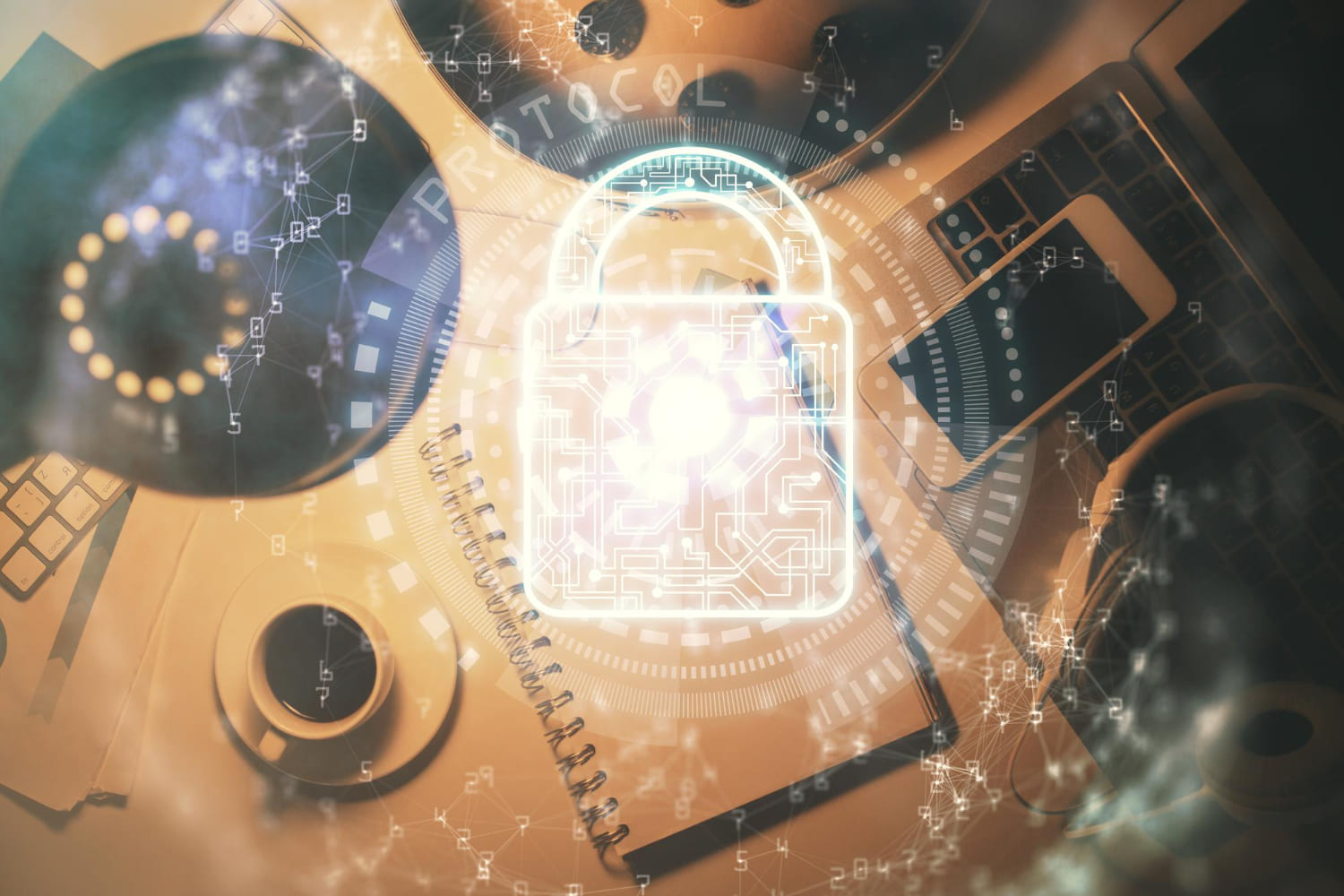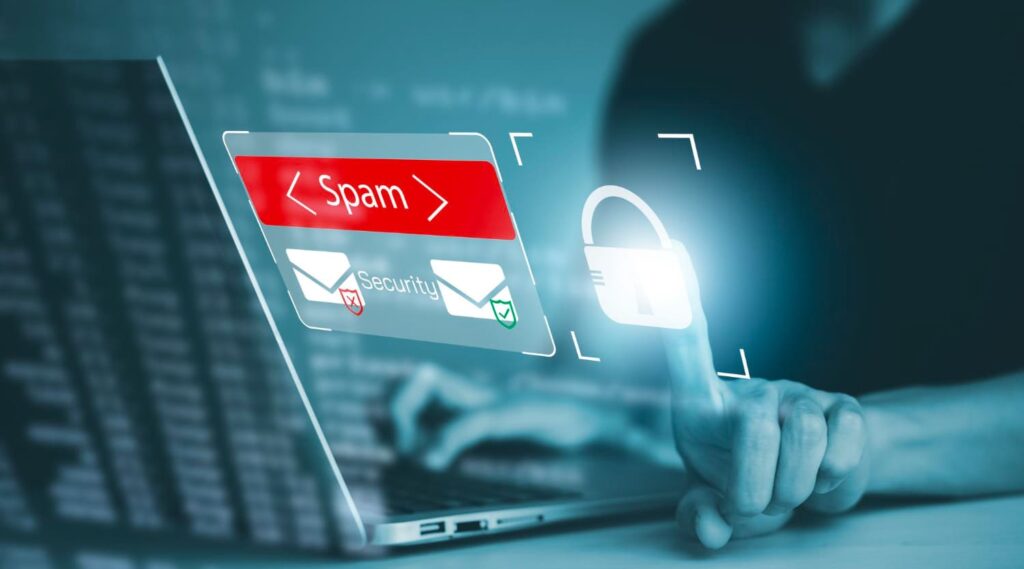Ensuring your online data security is more critical than ever, especially in an era where data breaches and cyberattacks are common occurrences. But how can you ensure that your sensitive data, such as emails, texts, and files, is not intercepted or altered by malicious actors?
One of the most powerful and extensively used solutions is PGP encryption, a cryptographic technique that encrypts and decrypts data using public and private keys. We’ll go over the fundamentals of PGP encryption, including how it works and why it’s so important for digital security. Read on!
What is PGP?

PGP, or Pretty Good Privacy, is an encryption system used to encrypt and decrypt sensitive online data using public and private keys. Developed in 1991 by Paul Zimmerman, this encryption system is widely used for email encryption to send data confidentially.
In 2024, over 361 billion emails are projected to be sent and received daily. This number shows how much valuable data is in transit daily, making it prime prey for cybercriminals. As a result, robust data security measures for emails are vital to protect your data—this is where PGP steps in and plays a significant role.
How Does PGP Encryption Work?

The PGP system combines hashing, cryptography, and data compression techniques. It works similarly with SSL, SFTP, or Kerberos.
It uses a public key system in which both users have unique encryption and a private key that only they know. When the sender sends a message, it’s locked with their public key. The recipient unlocks it with their private key when they open the message.
PGP works in three steps:
- PGP creates a single-use public encryption algorithm that cannot be guessed.
- It turns into a random session key, which is then encrypted with the recipient’s public key for secure transmission.
- The recipient decrypts the session key with their private key to access the message.
PGP employs efficient algorithms to create digital signatures from a hashing algorithm, a type of mathematical function that jumbles data to make it unreadable. This ensures secure message delivery.
Public Key Versions of PGP

There are two public key versions of PGP:
Diffie-Hellman
Named after American cryptographer Whitfield Diffie and American cryptologist Martin Hellman, the Diffie-Helman key exchange creates a shared secret for secure communication between two parties on a public or insecure network.
The encryption is done using the CAST and the Secure Hash Algorithm (SHA-1) to create a hash code.
Rivest-Shamir-Adleman (RSA)
RSA is one of the world’s oldest public-key cryptosystems. An RSA user shares a public key made from two big prime numbers and an extra value, keeping the prime numbers secret. Anyone can encrypt messages they receive with the public key. However, only those with the private key can decode them.
However, the RSA algorithm is relatively slow, so it’s uncommon to use it to encrypt users’ data directly. Instead, it’s often used to aid symmetric-key cryptography in transmitting shared keys.
PGP Encryption Uses

PGP encryption has been used as a security standard across industries to protect their sensitive data. Here are the two most essential uses of this system:
Encrypting Emails
A Pew research found that 79% of Americans worry about how corporations utilize their personal information. As more users realize the importance of data security, PGP encryption is set as the default security system to safeguard their data when sending emails from organizations and companies.
Digital Signature Verification
When a user is unsure about the identity of an email sender, a Digital Signature can be used as email verification. It works by using an algorithm to combine the sender’s key with the sent data to generate a “hash function” further. The hash function is then encrypted by the sender’s private key.
The recipient can decrypt using the public key of the sender. Any changes in the message signal potential issues: sender identity, Digital Signature forgery, or message tampering.
Advantages and Disadvantages of PGP Encryption

With all its functionality, PGP encryption comes with a set of advantages and disadvantages. Check them out!
Advantages of PGP Encryption
The main benefit of the PGP algorithm is that it is robust enough to prevent a malicious actor from breaking. Other advantages include:
- Protecting sensitive data from unauthorized access.
- Ensuring data integrity during transfer, guarding against tampering.
- Securely sharing information among multiple parties using various cryptographic techniques.
- Verifying email sender authenticity with digital signatures.
- Enhancing cloud security.
Disadvantages of PGP Encryption
Some of the drawbacks of the PGP encryption are:
- Complexity: PGP encryption can be challenging to use due to its technical requirements and compatibility issues.
- Key management: Users must understand PGP’s intricacies to maintain security, safeguard private keys, and ensure key authenticity. This way, they can ensure correct usage.
- Anonymity limitations: While PGP encrypts messages, it doesn’t hide metadata, potentially compromising user privacy and anonymity. However, this can be tackled by using proxy servers or VPNs.
Despite its strengths, PGP encryption requires careful handling to address these limitations effectively.
Different PGP Solutions

There are several PGP solutions that cater to your needs. Here are some of the best PGP solutions to implement for your business:
Apple Mail With GPGTools
GPG Tools offers Mac users a comprehensive suite of GPG-based software tools designed to fortify encryption across all facets of the system.
With four essential utilities rooted in GnuPG technology, this package includes an Apple Mail plugin for secure emailing, a robust key manager, a versatile Service enabling GPG integration in various applications, and a command line engine for advanced users.
However, it’s worth noting that while enhancing security, some users have reported a potential performance slowdown in Apple Mail.
Outlook with gpg4o
gpg4o emerges as a Microsoft Outlook Add-in that seamlessly implements the OpenPGP standard using GnuPG technology. Tailored for Outlook versions 2010 to 2016, it prioritizes user-friendly operation and seamless integration within the Outlook environment. Notably, it offers specialized features catering to commercial needs, making it a valuable asset for business users.
Note that this convenience comes at a cost, with business licenses priced relatively high at 56.36€, potentially posing a barrier for some users.
ProtonMail
Unlike mainstream providers like Gmail and Outlook, Proton Mail refuses to scan your emails or profit from your data. End-to-end and zero-access encryption ensures that only you have access to your messages and attachments, shielding you from prying eyes and email trackers.
While some critics raise concerns about its implementation of PGP through JavaScript, Proton Mail remains committed to enhancing its security measures. Plus, this service offers a free and secure alternative, fortified by open-source encryption and rigorous security audits.
Android and FairEmail
FairEmail is a top-notch Android email app known for its impressive features and commitment to user privacy. Created by Marcel Bokhorst (M66B), it operates on the open-source GNU GPLv3 license, promising transparency and accountability. It relies on OpenKeychain to keep your messages safe and lets you add extra security with encryption.
Despite its strengths, it’s essential to acknowledge that FairEmail’s community is relatively small due to the limited use of PGP on Android. Nonetheless, for individuals seeking a secure and private email experience, this service is an excellent choice, offered free of charge with donations welcomed.
Thunderbird With Enigmail
Enigmail stands as a valuable Add-On designed for both Postbox and Mozilla Thunderbird users, integrating seamlessly with GnuPG to adhere to the OpenPGP standard. This handy tool empowers users with email encryption and signing capabilities directly within their email clients, prioritizing simplicity in enhancing email security.
While Enigmail, like many open-source offerings, lacks dedicated support, its extensive and vibrant user community compensates with a wealth of resources. From forums to guides, there’s ample assistance available for newcomers.
Frequently Asked Questions
Is PGP encryption secure?
Is PGP better than AES?
Is PGP the same as GPG?
Conclusion
Safeguarding your online activities is more crucial than ever in today’s digital landscape, which is rife with cyber security threats. PGP encryption stands out as a robust solution, offering a sophisticated approach to securing sensitive data, especially emails. By combining both symmetric and asymmetric keys, PGP ensures enhanced security and versatility, albeit at the cost of complexity and speed.
Knowing your specific needs is crucial in selecting the most suitable encryption method. Remember, implementing a combination of encryption systems could provide an added layer of protection, enhancing your overall digital security posture.
If you’re interested in learning more about the best practices to safeguard your data, contact Fluxgate now!
